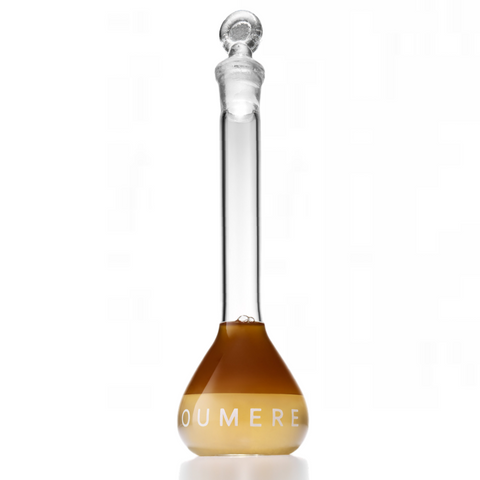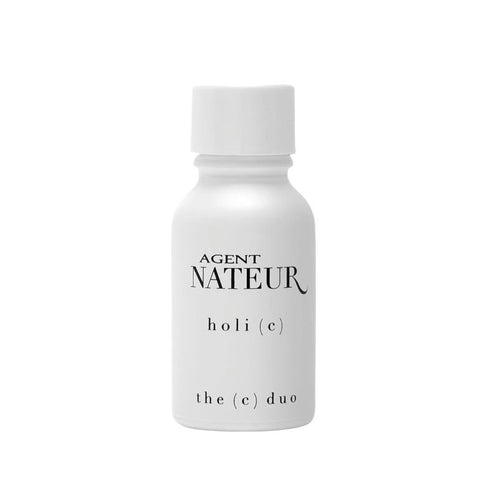Free shipping for HK orders HK$600+
Some Most Common Skin Care Questions Answered
January 04, 2022
Since we started this special section with our founder Wendy a few months back, we've been getting a lot of questions from customers and readers regarding specific skincare issues. Let's get into some of them today!
____________________________________
Sometimes, when we apply a skincare product, whether it be a new product, or an old product that we have had no issues with before, there is this stinging sensation. Is it normal? Does it mean we are or have suddenly become allergic to it?
Wendy: That is a very good question and not as straight forward as it seems, because more often than not it is not an allergic reaction.
Our skin's barrier is slightly acidic with a pH between 4.5 and 6.2, depending on factors such as age, gender, ethnicity, climate, and body part, whilst collected research shows the the skin is healthiest at around pH 4.7. This is because with more acidity, the skin can combat harmful microbes and damaging free radicals that can accelerate the aging process. It also helps with barrier function, moisture retention, and microbiome health, i.e. more good bacteria and less bad bacteria on the epidermis.
So when you use a skincare product that has a pH level lower than your skin’s natural pH, for instance, acid-based or ascorbic acid product, you may have a stinging sensation, especially when your skin’s pH is above optimal, which can be resulted from many factors, such as water (the pH of water in Hong Kong is between 8.2 and 8.8, meaning it is alkaline), using soap (even handmade soap, generally has a pH range of 8.0 to 10.0) and other alkaline products.
When the AHA is under 10%, BHA under 2%, and PHA under 15% in concentration respectively, you just need to slowly build up the skin’s tolerance level. With regular use, the acids will actually strengthen the skin and you will no longer feel it stings. Anything above the said concentrations may easily cause irritation and inflammation, and is hard for the skin to build tolerance. As for ascorbic acid, we always suggest avoiding it because daily use can definitely cause troubles. This is because for ascorbic acid to stay stable in the bottle, it needs to stay below a pH of 3.5. On top of that, because it is not easily absorbed through the skin’s lipid barrier, a concentration of 15-20% is usually needed for a product to be effective enough to make a difference. Exposing the skin to this level of acidity every day and night can destroy the skin’s lipid barrier and cause major irritations, leading to redness, sensitivity, dryness, peeling, and acne.
Product Recommendation
AGENT NATEUR
acid(wash) Lactic Acid Brightening Cleanser <- Click to shop
Another main reason for stinging is that your skin barrier is compromised, which can be due to issues like picking the skin, squeezing pimples, using stripping cleansers and cleansing brush, over exfoliating with scrubs, dry weather, lack of oils in the skin, severe dehydration, using a product high in pH, using ascorbic acid as mentioned above, etc. Signs of a compromised barrier include redness, tightness, dryness, peeling and sensitivity to the touch. A fragile or damaged skin barrier is like an open wound, so anything you put on it can potentially sting. Think how even water stings when you wash your hands or shower with a cut somewhere? It is just natural and not an allergic reaction at all.
What you need to focus on, is to rebuild your skin barrier, meaning using products that are rich in oils, because the barrier is made up of lipids (ceramide, cholesterol and fatty acids), and avoid all the things that can further disrupt the barrier. Once your skin barrier is intact and healthy, you won’t feel the sting anymore when you use your skincare products. Remember, most moisturizers won’t do because their main function is to lock in moisture rather than repairing the barrier, unless they are very high in oils.
Product Recommendation
OUMERE
Serum Bioluminelle™ <- Click to shop
Obviously, there are other reasons for stinging, such as using products that contain stripping alcohol, synthetic fragrance, or active ingredients that are in overly high concentrations, including essential oils. What you can do is simply avoid products that contain the first two, and restrain from using overly concentrated active ingredients——high concentration doesn’t necessarily mean it is good for the skin (I have previously discussed the maximum healthy concentration of various active ingredients, you can check it out here).
____________________________________
You just mentioned how ascorbic acid, a potent form of vitamin C, can be irritating to the skin. Should we just skip it, as we often see brands promoting certain ingredient(s) by stating that it has more antioxidant properties than Vitamin C?
Wendy: While we do recommend avoiding ascorbic acid due to the potential issues it can cause, no, you can’t just skip it. Comparing vitamin C’s antioxidant properties with other ingredients is also simply misleading. First of all, comparing antioxidant potency between different ingredients is like comparing an apple to an orange. Just like eating vegetables, you need a variety, not just one type, right? Free radicals have different effects in different areas of the skin, and every antioxidant behaves differently due to its chemical properties, which means no single antioxidant can combat the effects of every free radical. In fact, the more types of antioxidants you have in your skincare routine the better.
Product Recommendation
KLUR
Brilliant Light Multi-Correction Repair Serum <- Click to shop
Secondly, while it is an excellent antioxidant, vitamin C does so much more and is essential for skin health. For instance, it aids in the skin’s natural regeneration process and repairs damaged skin cells, boosts collagen production, inhibits melanin production which can lighten and prevent dark spots and hyperpigmentation, and prevents the depletion of other essential nutrients in the skin due to UV exposure and other environmental factors. In fact, not only can you not replace vitamin C with anything because it is that important, it is absolutely paramount to add a vitamin C in your skincare routine, because studies have shown that oxidant stress via pollutants or UV irradiation is associated with depleted vitamin C levels in the epidermal layer, resulting in decline in collagen synthesis, wrinkles, dryness, disruption of connective tissue and fragility of blood vessels, wound healing impairment, and so on.
____________________________________
So, what other types of vitamin C do you recommend then besides ascorbic acid?
Wendy: There are two types of vitamin Cthat are highly recommendable——Sodium Ascorbyl Phosphate (SAP) and Tetrahexyldecyl Ascorbate (THD).
SAP is a form of light-, oxygen-, and water-stable Vitamin C that has a salt molecule attached to it. It provides the same skin benefits as L’Ascorbic Acid, and although in a less potent way, it is more bioavailable as it is readily absorbed and utilized by the skin without causing any irritation, making it the perfect go-to Vitamin C form for all skin types, including sensitive and acne-prone skin, as well as pregnant/breastfeeding ladies. What’s better, it has an added benefit of being an amazing acne fighter!
Product Recommendation
AGENT NATEUR
holi(c) The C Duo <- Click to shop
Whilst, besides providing all the skin benefits other vitamin Cs do, THD, an oil-soluble form of Vitamin C, can penetrate further into skin where it works with vitamin E (tocopherol) that’s naturally in your skin or in skin care products to target skin’s underlying support system, neutralize the types of free radicals that damage skin’s lipids such as ceramides and cholesterol, unclog congested pores, and mitigate inflammation from acne breakouts.

Product Recommendation
KLUR
Unseasonal Kind Lipid Replenishment Oil <- Click to shop
___________________________________
One last question for today——do we really need to change all skincare products during season transition?
Wendy: While our skin may change due to weather, it is actually more important to switch up products based on your skin condition at any given point of time, and not just according to the weather. The best is to learn how to read the signs, and give your skin what it needs.
For example, you think you need a heavy moisturizer, because well, it is winter, but what you end up getting is more acne, plus you still feel dry, are you going to keep on using a heavy moisturizer? Clearly that is not working for you, is it? Or during summer, your skin is just dry and sensitive because of the air-con indoors and damaging sun outdoors, which means a damaged barrier. Are you really going to avoid oils, which helps to repair the barrier and soothe the skin, just because it is summer?
Product Recommendation
EATH LIBRARY
The Pure Wonder Active Serum <- Click to shop
Temperature and humidity levels do indeed impact the skin, I’m not saying they don’t at all; but the truth is, our skin is the largest body organ that is continuously changing every single day, subject to factors like age, hormone fluctuations, stress level, diet, sleep quality, etc., with or without weather changes. It is thus more beneficial to learn to how to give the skin what it needs, rather than giving it what you think or what the media tells you it needs just because the weather is changing.
Also, don’t forget a lot of skincare ingredients take at least weeks and months to show visible results. If you switch up your products every season, you are simply not giving the products time to work and show their full potential, even though they are actually working hard behind the scene. Not only will you be wasting money, you will also never really get the optimal results the products can truly offer. Even a good relationship takes time to build, right?
Product Recommendation
ANFISA
LILOU Radiant Hydra Balm <- Click to shop
Also in The Journal

The Hidden Culprits of Skin Aging: Autophagy Decline and Zombie Cells
January 07, 2026
Don't just mask aging—reverse it. Learn how clearing Senescent Cells and restarting Autophagy creates lasting youthful skin.

The Anti-Aging Gold Standard: How Retinol Reshapes The Skin
November 12, 2025
Learn why retinol is the gold standard for anti-aging, how it works, what similar ingredients exist, and some common myths and misconceptions.

The Gut-Skin Connection: The Path to Healthy Skin
October 26, 2025
Acne, eczema, rosacea, and sensitivity can all be linked to the gut health, and even gluten? Learn all about the connection between the gut and the skin.
+Recent Articles
-
The Hidden Culprits of Skin Aging: Autophagy Decline and Zombie Cells
January 07, 2026
-
The Anti-Aging Gold Standard: How Retinol Reshapes The Skin
November 12, 2025
-
The Gut-Skin Connection: The Path to Healthy Skin
October 26, 2025
-
The Secret to Reversing Skin Aging! How Growth Factors & Peptides Help Turn Back the Clock
October 13, 2025
-
The Best Ways and Times to Take Different Supplements
August 19, 2025
-
Luxury vs. Budget-Friendly Skincare Products——What Are Their Differences?
August 06, 2025
-
How to Prevent and Improve Post-Inflammatory Hyperpigmentation (PIH)
July 10, 2025
-
How to Prevent and Improve Post-Inflammatory Erythema (PIE)
July 08, 2025
-
The Ultimate Cleansing Guide to Improve Skin Conditions
June 03, 2025
-
Do You Have Sugar Face? How Does Sugar Affect Our Skin and Appearance?
May 20, 2025
Subscribe to get skincare knowledge delivered to your inbox!








